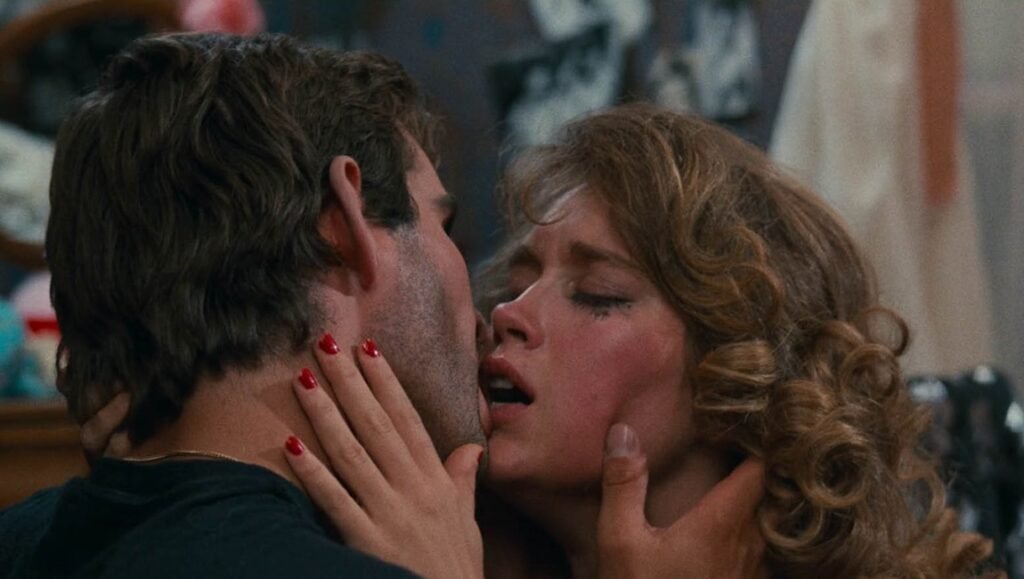Paul Vechhiali’s origins are not unfamiliar to the global cinephilia which is attracted to his films — born in 1930, raised on classic French cinema, a brief contributor to Cahiers du Cinema, and a legacy as one of France’s undersung “great” filmmakers. However, unlike the most popular filmmakers who emerged from Cahiers, Vecchiali is not widely accepted as a “new wave” director, with his most popular period not being produced until the 1970s and ’80s, working under his own company Diagonale (which focused on sexually underrepresented filmmakers). His filmmaking career, which lasted from 1962 to 2023 (the year of his death), demonstrates one of the most freeing oeuvres to be found in this generation, and a devotion to the sexually marginalized in all their stripes, which paints a picture so vividly prismatic that every viewer immediately understands that they are seen. It’s within this context that Rosa la Rose, fille publique (1986), arguably the director’s crowning achievement, offers a glimpse into a few days in the life of a prostitute.
As the film commences, there is not a second to blink before its tensions are laid bare. A young man offscreen asks Rosa (Marianne Basler), “How much?” She turns to face the viewer, the camera, a sight to behold: “500.” A public girl,” a prostitute with a heart of gold and an even more dazzling smile, she goes off with two men, and left behind are the other working girls, “remoras,” 40 (Catharine Lachens) and 35 (Evelyne Buyle). They discuss in frank terms the ways in which Rosa casts a spell on every man who might’ve been their customer. But what seems at first to be contempt toward Rosa is softened into jealously, and then is revealed to be an embrace, and good will, which crescendos as a song and dance: it’s Rosa’s 20th birthday. She has been surprised by her company with a grand party. It’s a gay celebration where Rosa meets the love of her life, a passing painter, Julien (Pierre Cosso). He has a boyish, gorgeous face, with lakes in his eyes that rival the depth in hers. He’s an enigma, a total stranger, but he’s offering her a way out, pleadingly: “I’m not talking about love. I know it wouldn’t faze you. I’m just talking about living a different way.” What then is the struggle? Rosa does not believe that love can offer her a new life on these terms. She’s worth something very tangible to her pimp, Gilbert (Jean Sorel), and those around her, and she does not believe that she is regarded as human to them, only a number: “five years.”
Rosa la Rose, a tragedy though it is, holds an unimaginable and uncontainable light. Vecchiali commands total control over the camera, which moves around scenes in masterfully choreographed dances with the actors. This is Vecchiali’s touch of Max Ophuls, one of two filmmakers the film is dedicated to (the other is Jean Renoir; both have also directed films about sex workers). The film’s heart, however, arrives in the punch-ins, as Vecchiali’s camera surveys the topography of people at their breaking points, the ways a hand advances and retreats. A simple, incredible movement: a shot of Rosa blowing out the candles on her birthday cake quickly cuts to the fingers of her childish stalker/admirer, Little Robert (Laurent Lévy), darting back from the banister over which he spies on her. Every gesture in the film lingers in this way, inching into the next, echoing. Such is also the case in the incredible final scene: blinds on a window open to a sun that has shined on Rosa before, Vecchiali’s camera slowly tracing the advance of the light over her room as if it were an invading army, its only herald the drop of a single tear.


Comments are closed.